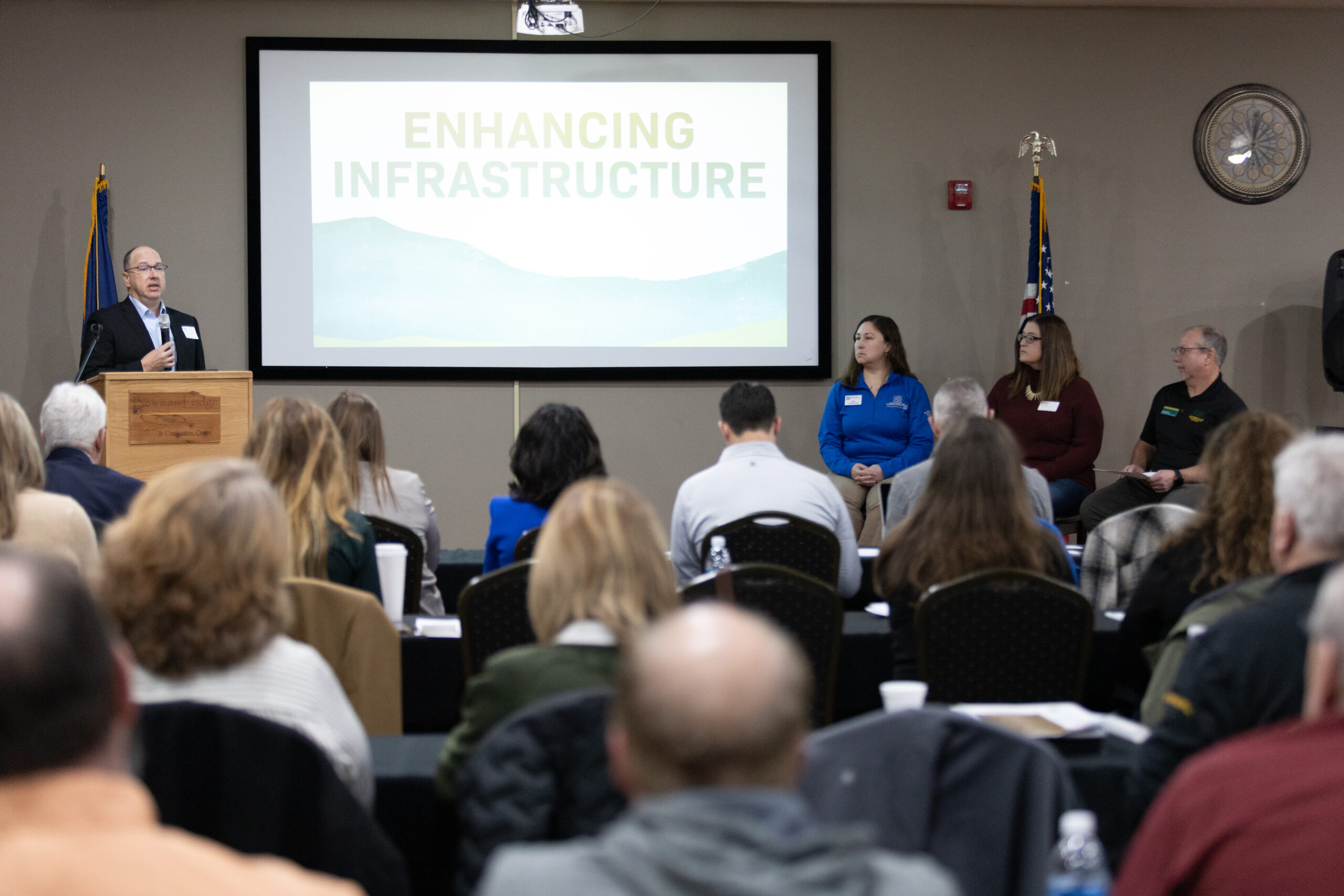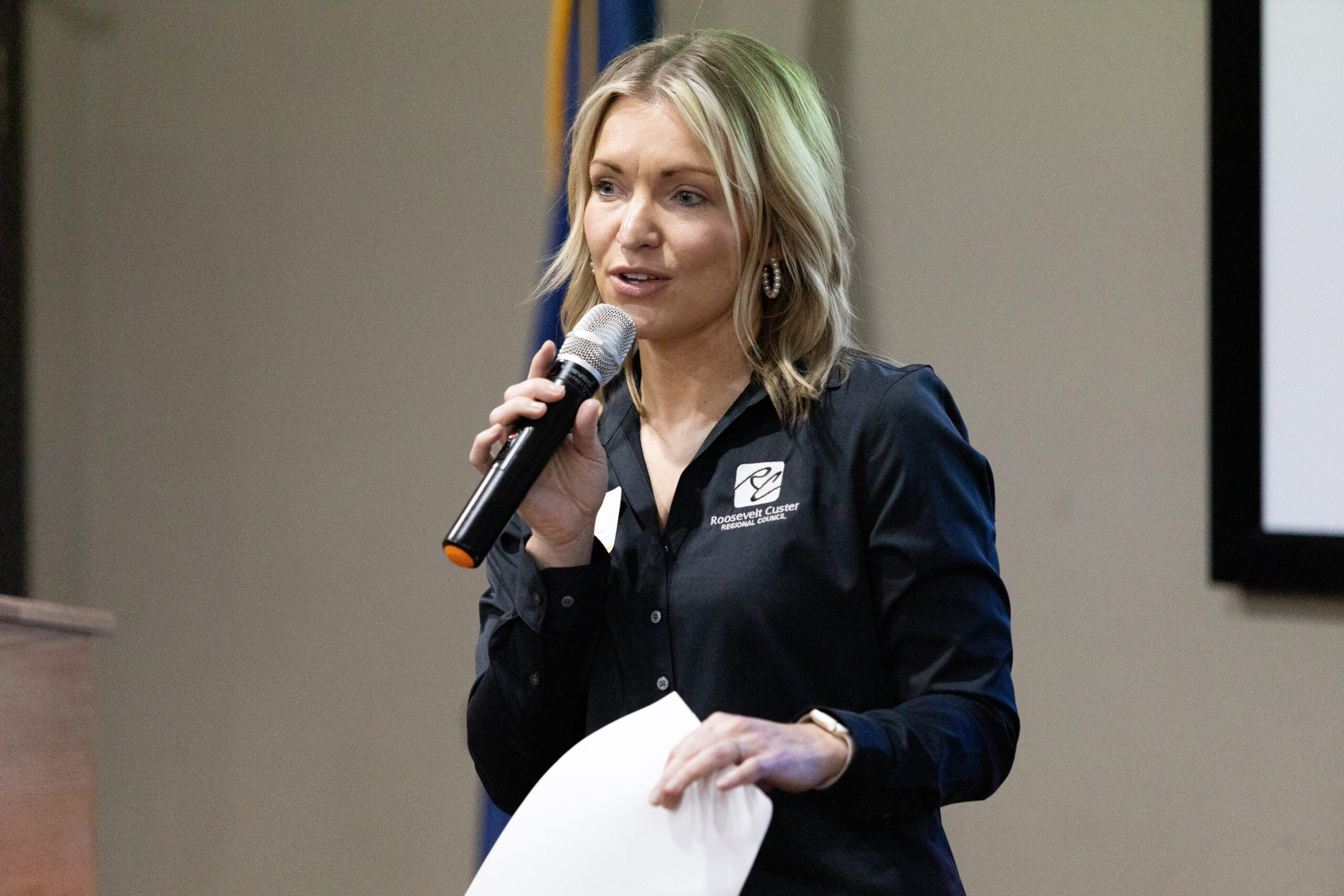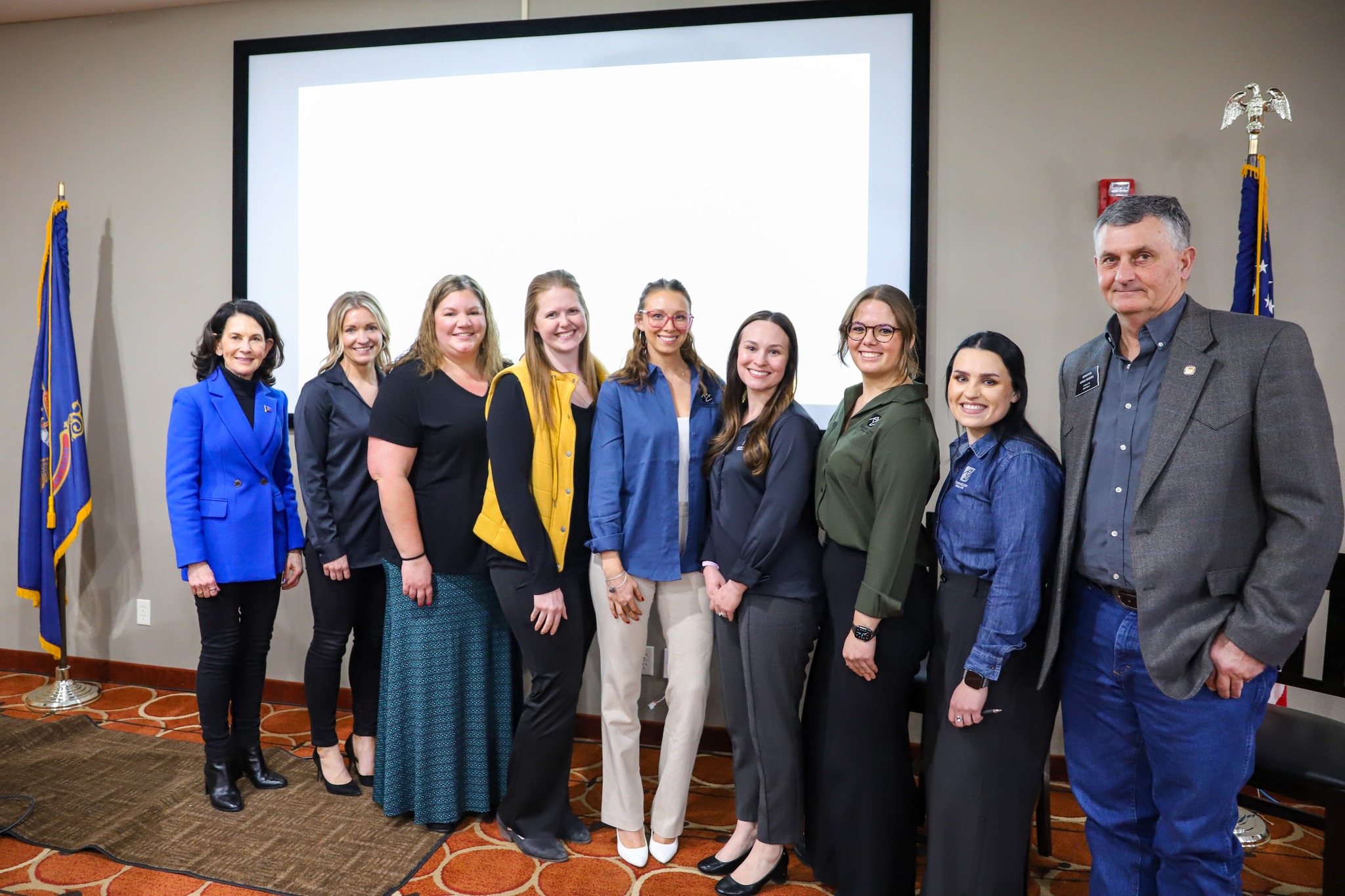
State of Region 8

November 2024
The legislative priorities outlined for Region 8 serve to foster resilience, growth, and prosperity across the region

May 2025
We hosted our annual State of Region 8 event on May 20 in Medora, drawing over 80 regional stakeholders, legislators, and local leaders to discuss growth, challenges, and opportunities across Southwest North Dakota.
May 2025 State of Region 8 Event
This event showcased Roosevelt Custer’s leadership in shaping regional strategies and supporting strong, resilient communities.
Representative Ty Dressler spoke on property tax reform and school funding, while Senator Greg Kessel reflected on recent legislation affecting rural communities. Commerce Commissioner Chris Schilken provided updates on economic development, and DOT Director Ron Henke outlined major infrastructure investments from the state’s $2.7 billion transportation budget.
November 2024 State of Region 8 Priorities Booklet and Postcard
Through meetings and conversations with regional stakeholders and residneets, we developed a comprehensive set of legislative priorities for Region 8. These legislative priorities serve to foster resilience, growth, and prosperity across the region. Each priority reflects the unique needs of our communities, highlights key areas where focused efforts and investments can make the greatest impact.
As we work to advance these goals, our team remains committed to advocating for policies and resources that empower our communities to thrive today and into the future.
February 2024 State of Region 8 Event
We hosted the first State of Region 8 meeting on February 29 in Bowman, ND. The event brought together legislators, state officials, local leaders, and community members for a day of discussion and collaboration.
Senator Greg Kessel, Bowman City Commision President Lyn James, Lieutenant Govenor Tammy Miller, Commerce Commissioner Josh Teigen, and Roosevelt Custer Regional Council Executive Director Teran Doerr welcomed attendees to the event. Teran Doerr presented the regional strategic plan, followed by discussions on key issues affecting the region, such as infrastructure, childcare, workforce, housing, and tourism.
The roundtable sessions offered attendees face-to-face networking with state legislators and officials, focusing on topics like tourism, property tax, and healthcare.
The meeting provided a valuable opportunity for Region 8 to highlight the unique challenges facing rural communities, foster dialogue among key stakeholders, and explore solutions for positive change.


